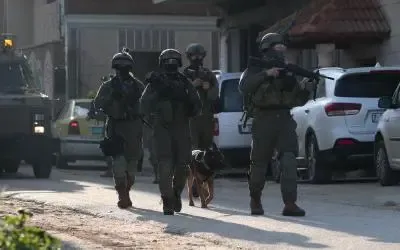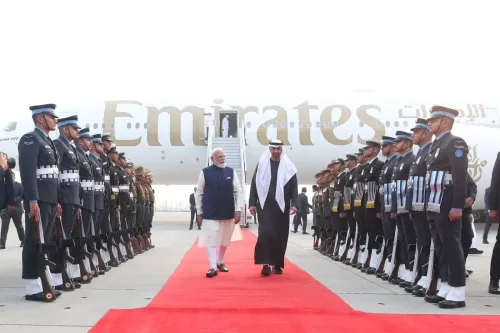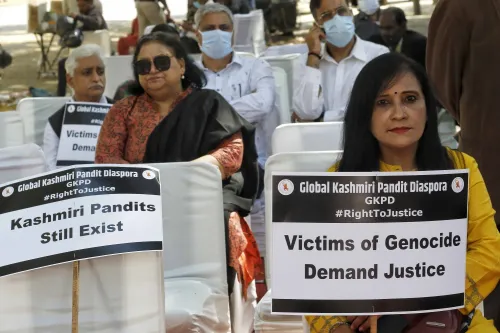Why Are Israeli Forces Increasing Their Operations in Southern Syria?

Synopsis
Key Takeaways
- Israeli incursions into southern Syria have significantly increased.
- Over 30 incidents were recorded in November alone.
- Israeli forces are establishing a strong military presence in the region.
- The situation poses security challenges for the southern border.
- International reactions highlight concerns over sovereignty violations.
Damascus, Nov 16 (NationPress) Recent weeks have seen a notable escalation in Israeli incursions into southern Syria, with the Syrian Observatory for Human Rights documenting over 30 incidents in just the first half of November. The monitoring organization, based in Britain, reported on Saturday that Israeli military forces carried out ground operations, apprehended both civilians and soldiers, cleared roads and agricultural land, and established temporary military checkpoints in the Quneitra and Daraa provinces. They characterized this activity as an unprecedented surge occurring amid a lack of any formal response from Damascus, according to the Xinhua news agency.
The Observatory highlighted that these raids and ongoing violations reflect the increasing security challenges along the southern border, where Israeli forces have bolstered their presence since late 2024.
Israel has expressed that southern Syria must avoid becoming “another southern Lebanon” and has issued threats of “painful blows” against armed groups or Syrian military forces approaching the border. In mid-2025, the Israel Defense Forces established at least nine permanent bases within Syrian territory, creating a 15-kilometer “zone of control”.
The escalation heightened in July following Israeli strikes and operations in response to clashes in the Druze-majority province of Sweida. Israel stated it would continue to “operate forcefully” until all “perceived threats” were addressed.
Despite denunciations from the United Nations, Egypt, and Türkiye regarding violations of Syrian sovereignty, Israeli officials argue their actions are purely defensive, asserting that Syrian authorities do not maintain full control over the southern region.










